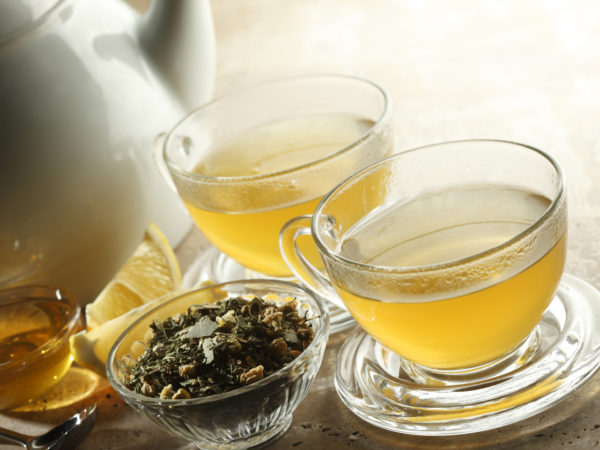Getting the Most out of Green Tea?
If I make green tea in gallon quantities and keep it in the refrigerator, will it retain its nutritional benefits? Does it go bad? If so, how can I tell? Also, do decaf versions of green tea have the nutritional benefits of regular green tea or are the benefits reduced right along with the caffeine?
Andrew Weil, M.D. | December 28, 2012

In general, fresh brewed hot tea is better for you than iced tea, but you can get the same health benefits from iced tea if you use good quality tea and prepare it properly. I checked on this issue with Iman Hakim, M.B.B.Ch., Ph.D., M.P.H., of the University of Arizona’s College of Public Health, who is an authority on the health benefits of tea. Dr. Hakim tells me that hot, brewed tea contains the highest levels of polyphenols, the antioxidants responsible for the health protective effects of tea.
To get similar benefits from cold tea, Dr. Hakim recommends chilling brewed hot tea in the refrigerator – cooling doesn’t diminish the availability of the polyphenols. However, Dr. Hakim says that if ice is added the caffeine will combine with the polyphenols to form an insoluble complex, which is not as bioavailable.
Different methods of preparing tea lend themselves to varied retention of tea’s health benefits. Iced tea is often made with more water and fewer tea bags than is the case when hot tea is brewed (usually one bag per cup of hot water). “Sun tea” is made by steeping tea bags in water for several hours in a glass container placed in the sun, but here, too, the amount of water and number of tea bags used can vary substantially. Depending on the preparation method, the concentration of flavonoids (another class of antioxidants found in tea) can vary from 202 to 847 micrograms per milliliter of tea, according to one of Dr. Hakim’s studies.
If you keep a large amount of brewed tea in the refrigerator, it will eventually begin to ferment, turning cloudy. This may happen after only 48 hours. If your refrigerated tea looks cloudy, throw it out. (It won’t taste good.) If you can’t use up large quantities before that happens, there’s not much point to brewing big batches.
I also asked Dr. Hakim whether or not decaffeinated green tea loses any of the beneficial polyphenols regular green tea contains. She says that, depending on the brand, polyphenols could be reduced by 15 to 25 percent when green tea is decaffeinated. (She notes that the loss of these beneficial antioxidants is much higher when black tea is decaffeinated.)
When shopping for commercially decaffeinated tea, avoid those that rely on the solvent ethyl acetate to remove the caffeine – it also removes most of tea’s beneficial polyphenols. The better method, called “effervescence” uses only water and carbon dioxide, and retains 95 percent of the polyphenols. Be sure to check labels to see which process was used. If it isn’t specified, you’ll have to contact the manufacturer to find out.
Andrew Weil, M.D.









